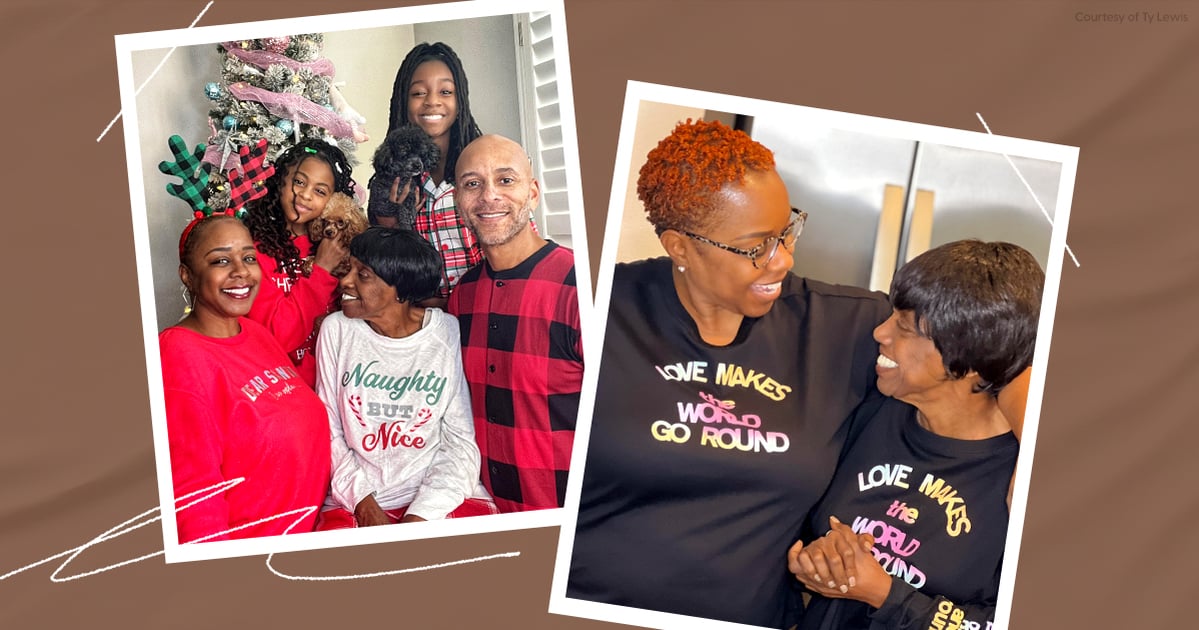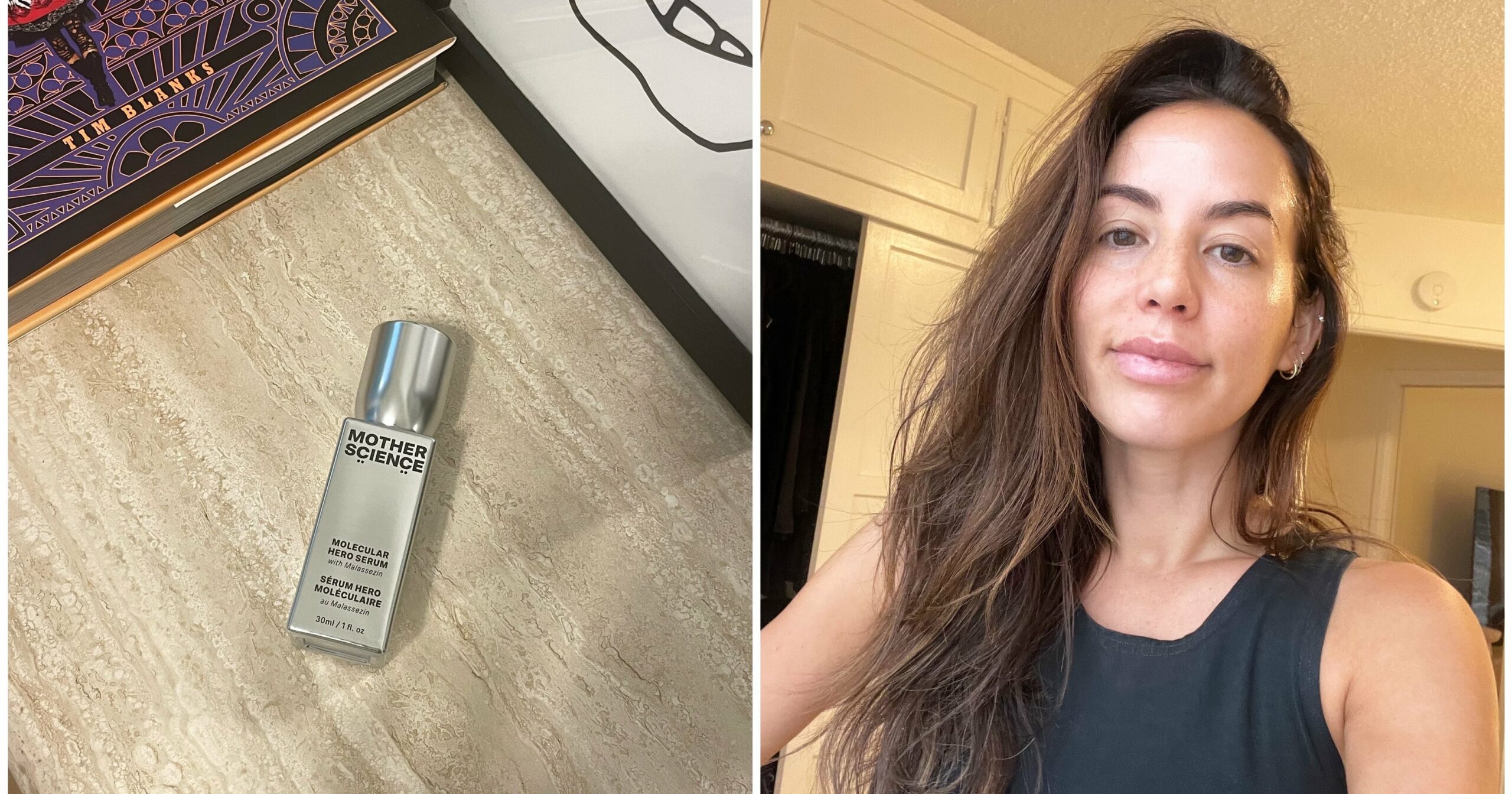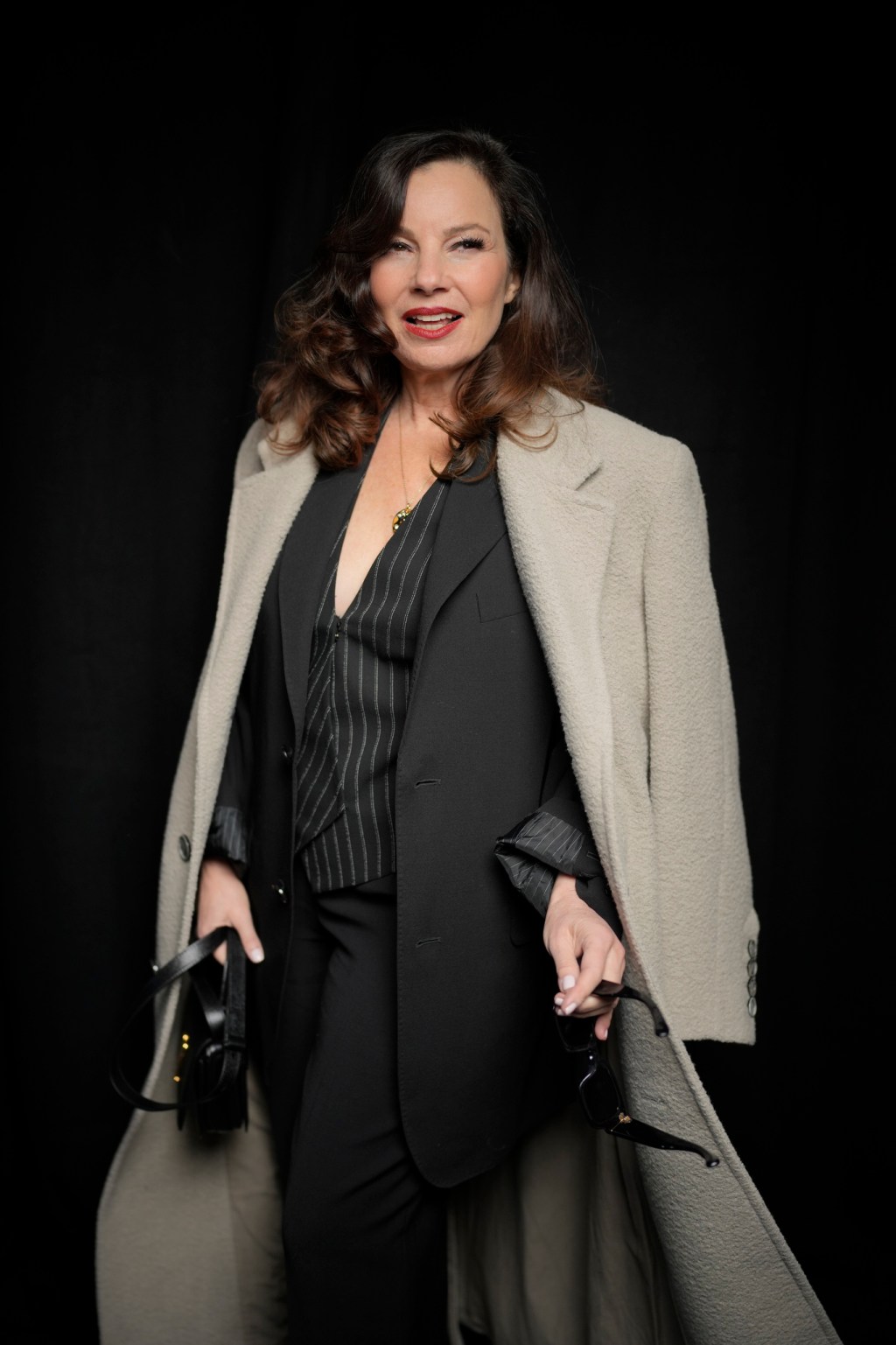Growing up, Ty Lewis only saw one side of her mom: the strong one. “She was always a hero,” she tells POPSUGAR.
In their small town of Meridian, GA, or what Lewis calls the “backwoods country,” everyone was considered family. And her mom, Gertrude Jordan, took that seriously as both an educator and a neighbor. “My mom was known in the community as the woman who would always give her shirt off of her back, who took care of other people’s children – and if a child in her classroom didn’t have something, she always gave,” Lewis recalls.
She wasn’t the type to lean into her emotional side. But while the words “I love you” didn’t come easy, her care was shown through her actions. “She was always a provider,” Lewis says.
Lewis, 44, has only seen her mother cry twice in her life: once at her mother’s funeral and then again when she was diagnosed with Alzheimer’s disease in 2014.
“Watching [my mom] lean over and sob uncontrollably was traumatic to me,” Lewis recalls. It also changed the dynamic of their relationship forever. Now as a caregiver to her mother, Lewis gets to see a more vulnerable side to Jordan. “I didn’t get that as a child. So to see that transformation – it’s such a beautiful thing.”
The bond between the two of them is palpable on @iamgertrudejordan, the Instagram page Lewis created to provide a more diverse representation of Alzheimer’s and caregiving.
“This is an arduous journey and so many people want to make it like gloom and doom,” Lewis says. “But I can find joy in my present circumstances and still live. Just because Mommy has a dementia diagnosis doesn’t mean that it’s death. No, we’re going to live.”
When she started the IG page in 2019, Lewis had just joined a dementia support group, but she felt less than supported. “It was a bunch of ‘Our loved ones are about to die,'” Lewis says. “And I knew that I could not do that.”
So, Lewis sought to create content that offered a different representation of caregiving. A staple of Lewis’s IG page and her life with “Mommy” has become her fashion Friday series – a take on the popular “get ready with me” videos. Only in Lewis’s videos, it’s not some 20-something influencer showing off her outfit of the day. It’s Jordan, happily dancing, shimmying, two-stepping, and showing off her look, which most days includes a pair of slacks, a nice top, loafers or flats, and a signature black wig that she loves to throw off.
“People come to our page and see, yes, Mommy has a diagnosis. But we’re still living and finding joy in this,” Lewis says. You’ll also find her two girls – who Lewis homeschools – helping out, singing to their grandmother, and openly talking about how the diagnosis has impacted them.
As a sandwich caregiver (those who simultaneously care for elderly loved ones and dependent children), Lewis says it was important to create these conversations early on. “One thing that people don’t understand is that when you have children and you’re a sandwich caregiver, they don’t understand this journey. They’re just trying to figure out ‘Why can’t I just go to the park?’ And you’re like, well, Grandma’s not feeling it today.” Inviting them in on the journey and allowing them to share their thoughts in order to process the change is easier than just assigning them a task and telling them they have to help, Lewis tells PS.
In embracing their new reality, Lewis also relied on tools from organizations like the healthcare company Otsuka, which creates resources to help families process dementia diagnoses. In the beginning, Lewis says, she cried a lot – and often. But when Jordan started to forget who Lewis was, calling her by Lewis’s aunt’s name, Dolores, it caused a major change in perspective.
“I can no longer be her child, even though in the flesh and on paper I am,” Lewis recalls thinking. “I had to step into her world and I had to stop saying, ‘Come into my world,’ because she’s no longer there. Being who she wants me to be gives her peace. And so if she wants me to be Dolores, that is who I’m going to be,” Lewis says.
This shift in thinking revolutionized the way she tackled caregiving and Alzheimer’s in general. Now, she doesn’t blame the diagnosis or fall victim to it. Instead, she finds the little wins within the journey.
“I think that’s one of the things that we need to continue to relay to other caregivers: that when you know your loved one feels comfortable and safe, it doesn’t matter who you are to them, or what the environment is,” Lewis says.
Alexis Jones is the senior health editor at POPSUGAR. Her areas of expertise include women’s health, mental health, racial and ethnic disparities in healthcare, diversity in wellness, and chronic conditions. Prior to joining POPSUGAR, she was the senior editor at Health magazine. Her other bylines can be found at Women’s Health, Prevention, Marie Claire, and more.




